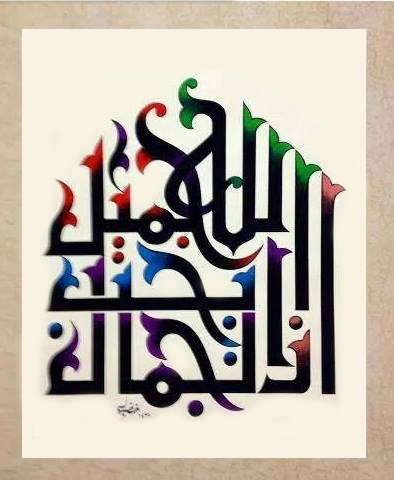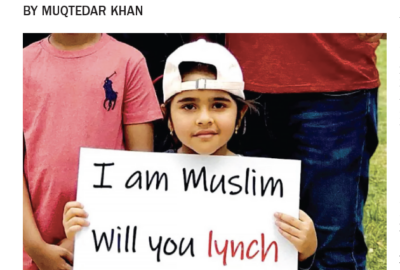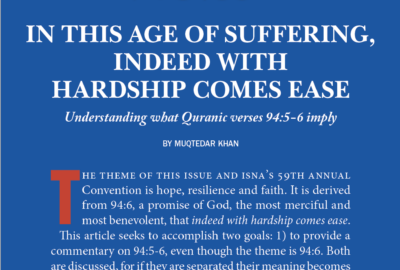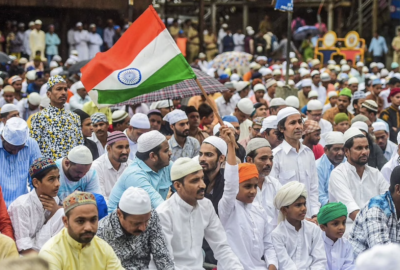God Is Beautiful and He Loves Beauty
إن الله جميل يحب ألجمال
 The holy month of Ramadan has come again and millions of Muslims worldwide count their blessings. They feel fortunate that they are getting one more opportunity to rededicate their lives to God; another chance to reboot their spiritual orientation. For many Muslims, Ramadan is a boot camp for rituals. Pray more, play less is their mantra. And so it should be.
The holy month of Ramadan has come again and millions of Muslims worldwide count their blessings. They feel fortunate that they are getting one more opportunity to rededicate their lives to God; another chance to reboot their spiritual orientation. For many Muslims, Ramadan is a boot camp for rituals. Pray more, play less is their mantra. And so it should be.
Prayer is the simplest and the easiest way to constantly reconnect with God. Muslims are obligated to pray five times a day and if they intend to fulfill this obligation, they will of necessity have to restructure their day to make it possible. Thus, in a way their entire life becomes God-centered, if every day is planned around the prayer schedule.
Ramadan is the time when Muslims try to emphasize four activities: prayer, fasting, charity and remembrance. Remembrance of God is done through through prayer, through extended and frequent reading of the Holy Quran and the constant chanting of the ninety nine names and attributes of God, such as the Most Merciful, the Most Benevolent, the Most Beautiful, the Most Wise, the True Reality and the All Knowing. The Quran itself teaches that the heart finds contentment in the remembrance of God (13:28).
بذكر الله تطمئن القلوب
Islam teaches that good deeds, especially charity and worship, are pathways to forgiveness and purification. An increased commitment to both is the best way to self-purification. An important characteristic of the spiritualized soul is sensitivity to forgiveness. Forgiving those who hurt us, and seeking forgiveness from God and others for our own transgressions, brings both softness and tranquility to the soul. Spiritual teachers describe this as the sweetness of faith that enriches the life of those who believe. The Quran often reminds us that God loves those who are constantly repentant and self-purifying (Quran 2:222).
إن الله يحب التوابين و يحب المتطهرين
The material world is a separation from the divine and the spiritual realm. It is both a test and a distraction. But when the material life is shaped by remembrance of God, then it becomes the bridge that connects to the ultimate reality, the final destination. Ramadan, when spent with an enhanced awareness of God, can be truly cleansing, spiritually as well as philosophically.
There is no doubt that worship in its ritualized forms is important. The Quran teaches that God created humanity only to worship him (Quran 51:56). But worship can be understood in broader terms, particularly in the Islamic context where the term for worship and service is one and the same (Ibadah). Ramadan, if Muslims wanted, could become a moment when they also reflect on their material and secular existence and restructure it to serve God and humanity and ensure that God consciousness permeates through service to others.
Often the importance of beauty as a divine quality and an attribute of the spiritual life is overlooked, even though most Muslims are aware of the Prophetic saying, “God is beautiful and he loves beauty.” In the Holy Quran, the word beauty and beautiful occur frequently. The heaven is desirable, because it is beautiful. God is beautiful so are his names. Righteous deeds and virtues are worthy because they too are beautiful as is the company of virtuous souls. The words of God are beautiful for they tell beautiful stories and are full of beautiful promises. There is beauty in his creation and in everything that he created. And above all he loves those who do beautiful things (2:195).
إن الله يحب المحسنين
The search for beauty, the desire for beauty, the love of beauty all lead to the same destination — God. I hope in this month of Ramadan, Muslims find it in their hearts to reflect on the relationship between aesthetics and spirituality. Pursuit of piety and justice can consume us, but the awareness of beauty is always pleasing to the soul.
How can we bring beauty into our lives? Material beauty is easy to recognize and for some even affordable. But spiritual beauty is hard to find and even harder to possess. I cannot claim that I have enough knowledge or experience to both describe and prescribe how spiritual beauty can be acquired. But I do believe that God created us to do beautiful things. Acts whose performance and whose product are both beautiful are the best. When done for the self they are enriching and when done for others they are spiritually uplifting. For a Muslim the quest for beauty is a divine purpose.
The Quran says that God created life and death to test us, to discover who among us is devoted to doing beautiful things (Quran 67:2). Today, the Muslim world is posed on the cusp of dramatic and historic changes. As we look for autonomy, freedom and dignity — I pray that we don’t forget to look for beauty.
اللذي خلق الموت والحياة ليبلوكم أيكم أحسن عملا








